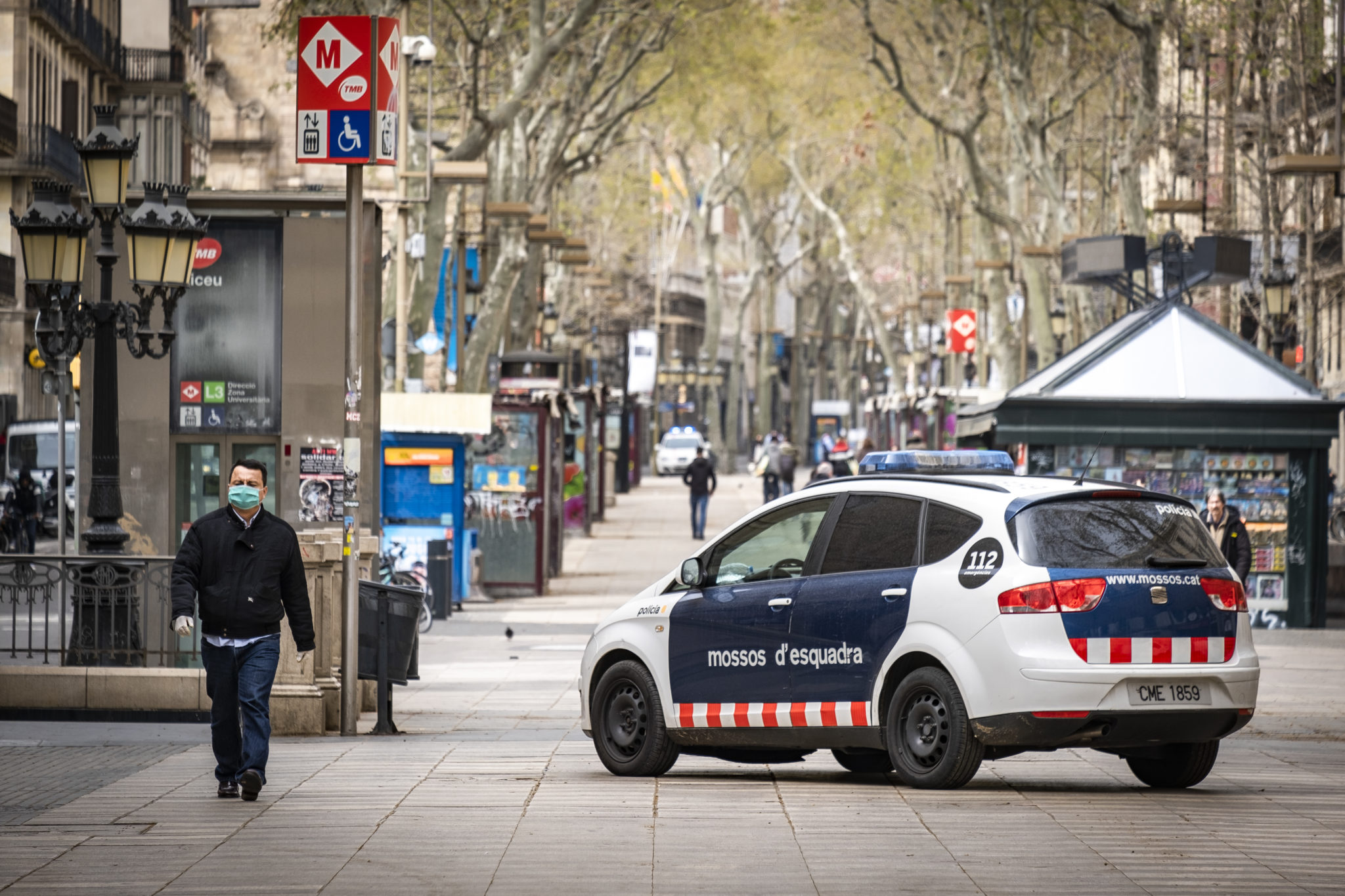One among many sports journalists who rely upon the occurrence of football across Europe for their livelihood, Graham Hunter spoke to Wednesday's OTB AM about the impact of coronavirus on his life, and the impact it is having on his local region Spain.
It is usually with the understanding that Barcelona or Real Madrid are in the news that Graham Hunter joins OTB AM to give us his reports on proceedings from the front-line of Spanish football.
Unfortunately, things were somewhat altered when the Scottish-born, Spanish-based football journalist joined us on Wednesday morning's show.
"I'm a phlegmatic person who takes this sort of stuff in his stride," he said half-jokingly. "I'm also extremely happy in my own company because I keep myself amused very easily.
"But turning the page to the serious side, yes, we're living through times that I never expected to see in my life.
"In this normally vibrant city [of Barcelona], and my neighbourhood is definitely one of the noisiest, it is now extremely quiet. The streets are relatively deserted, things are abnormal.
"So, we're doing OK. We're currently healthy, monitoring what is a very, very strange situation here in Spain and one that I guess it is predictable Britain and Ireland are heading towards."
 A person with a sanitary mask as a preventive measure walks along the almost deserted Ramblas. Photo by Paco Freire / SOPA Images/Sipa USA)
A person with a sanitary mask as a preventive measure walks along the almost deserted Ramblas. Photo by Paco Freire / SOPA Images/Sipa USA)In a similar manner to which the coronavirus disease has gripped Italy, Spain is at this point one of the worst hit areas in Europe. After a state of emergency was declared on Saturday, the Spanish government imposed a near-nationwide lockdown in an attempt to halt the spread of the virus.
A Spanish resident for almost the last two decades, Graham Hunter considered the reaction of the local people to these severe decisions.
"In my neighbourhood," he explained without wishing to speak generally for people across the country, "chemists are functioning, supermarkets are functioning and there hasn't been in this part of the world mob-buying or fighting over food or toilet roll.
"This is a really working-class neighbourhood, an old port village. It's been gentrified alright, but there are old-fashioned values still predominating here. I didn't expect people to behave indecently.
"There are cop cars patrolling, but it is different from the pretty revolting footage we've seen of drunken British tourists down in Benidorm, unwilling to be herded out of bars and off the beaches. The cops are here only to remind us of our obligations.
"I don't think anyone in the UK or Ireland has really been able to contemplate these measures being taken here, but in some provinces around Spain the army is being used to enforce lockdown, not just cops.
"But you have to accept that within recent time, Spain was not a democracy. Within my lifetime, it has had a dictator and there are a hardcore of people here that accept when the Nanny State speaks, you listen.
"That isn't unanimous by any means, but I think that the way in which Spain's state has inflicted this need to confine yourself to your quarters has been more broadly accepted than it would be in other countries around Europe."
One aspect of these unforeseen circumstances that has caught Hunter by surprise is the frequent espousal of gratitude from the Spanish public for their strained and courageous health-care workers.
"I grew up in the '60s and '70s when the country I lived in in Britain was unified by strikes," he recalled of his upbringing in Scotland. "When I was about 10 or 11, there were 3-day weeks, no power in the house, you had to stockpile food and I never expected to see that recurring.
"But it was a time when the country was paralysed by social movement. To see this unifying of people's expressions of emotion and spirit, that touches you and is a slight antidote."
They don’t just praise the Health Workers here. Protesting the ex King’s ill-gotten dosh #5MinuteCacerolada pic.twitter.com/XAE9pAZxeW
— Graham Hunter (@BumperGraham) March 18, 2020
Reflecting on what the current situation means for him in the professional sense, Graham Hunter explored the potential for change when normality does return.
"The impact on me has been gigantic," he admitted, "it's been like removing an opiate, how people tell you it is when they stop smoking - there is a craving.
"I don't just miss live football, but everything around it: the people, the stories, the movement, the ideas, the discussions.
"There isn't the ability to do much as a solitary, self-employed broadcaster and writer and the impact is huge as far as I'm concerned.
"It is my firm opinion that until we all come back, football must attempt to show solidarity, humour and continue speaking to the people that miss it.
"I really wonder, with an impact like this that we're all coping with as best we can, this will change people. For some clubs, there'll be fans who aren't there when they come back. That's a brutal fact of life.
"I imagine that footballers, as they step off their infernal merry-go-round of training, travelling, playing, will come back with a value change. In our industry, footballers are treated as commodities now and it is disgusting.
"I think footballers now with their families, with this unprecedented time together, this is unique for them and they might not like the way things have become."
Download the brand new GoLoud App in the Play Store & App Store right now! We've got you covered!
Subscribe to OffTheBall's YouTube channel for more videos, like us on Facebook or follow us on Twitter for the latest sporting news and content.







